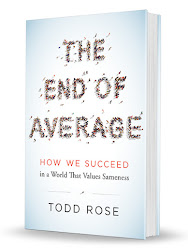I may be losing my credibility as a reader who prefers fiction, but I keep finding memoirs and other clever nonfiction books landing on my stack and completely capturing my focus. Of course, I've been an Ann Patchett fan since I read Bel Canto. Since moving to Nashville where I can drop by Parnassus Books, which she co-owns with Karen Hayes, I find more reasons to admire her work and her advocacy for books and for authors. I bought her latest collection of essays These Precious Days (evoking "September Song") as soon as it came out, but for some reason delayed beginning. I know that when it's time, a book finds me. By sharing her own life, she opens up a world to readers. Asked which is my favorite, the answer would change on any given day.
She writes about her "three fathers," her home, books and authors she loves. One particularly tender story is the account of the time Tom Hanks' assistant moved into Patchett's house during COVID while undergoing a cancer trial. I also suspect that I am not the only person who finishes this book with a longer "to read next" list.
By no coincidence, I read Mary Laura Philpott's latest memoir Bomb Shelter, after hearing her speak at a Parnassus event. Rather than focusing on book sales, she took the time to raise awareness of the good work of Vanderbilt's Monroe Carrell Children's Hospital, where her son was treated after the sudden onset of epileptic seizures.At the event, I also had the opportunity of meeting Dr. Jay Wellons, a pediatric neurosurgeon at Vanderbilt, whose first book All That Moves Us was released this month and merits a review all its own.
In a completely different vein, I have been recommending A. J. Jacobs' The Puzzler to anyone who, like me is obsessed with puzzles and word play. Jacobs, who may be best known for his earlier work of nonfiction The Year of Living Biblically, goes chapter-by-chapter through all types of puzzles. He starts with crossword puzzles, then discusses the New York Times' Spelling Bee, which has a surprising number of people waking in the wee hours and starting on the newest bee, published daily at 3 am EST. He also discusses the Rubik's cube, jigsaw puzzles, logic problems, and so much more. The writing is clever and the audiobook, which he reads himself, offers a pdf of the puzzles from the book that are difficult to translate into words. (He also includes some special puzzles at the end of each chapter specifically for audiobook listeners.) Since I blame crossword puzzles for slipping to third place in the 6th grade race for class rank and since I must admit that if I get up to use the restroom in the middle of the night, I check the spelling bee, this book spoke my language.The End of Average by Todd Rose was recommended by a colleague who is ahead of me in our doctoral studies. For someone who is statistically challenged, this book was a reassuring consideration of how averages can be misused, to the detriment of students, work productivity, and even pilot error.
Rose uses stories that are both interesting and true to draw attention to ways that an obsession with average has its drawbacks. This book served as a perfect companion to my favorite nonfiction book of the year Range by David Epstein. Rose, like Epstein, isn't ready to dismantle academic research, but her encourages readers to consider different perspectives. After all, he points out, no one is average.










No comments:
Post a Comment